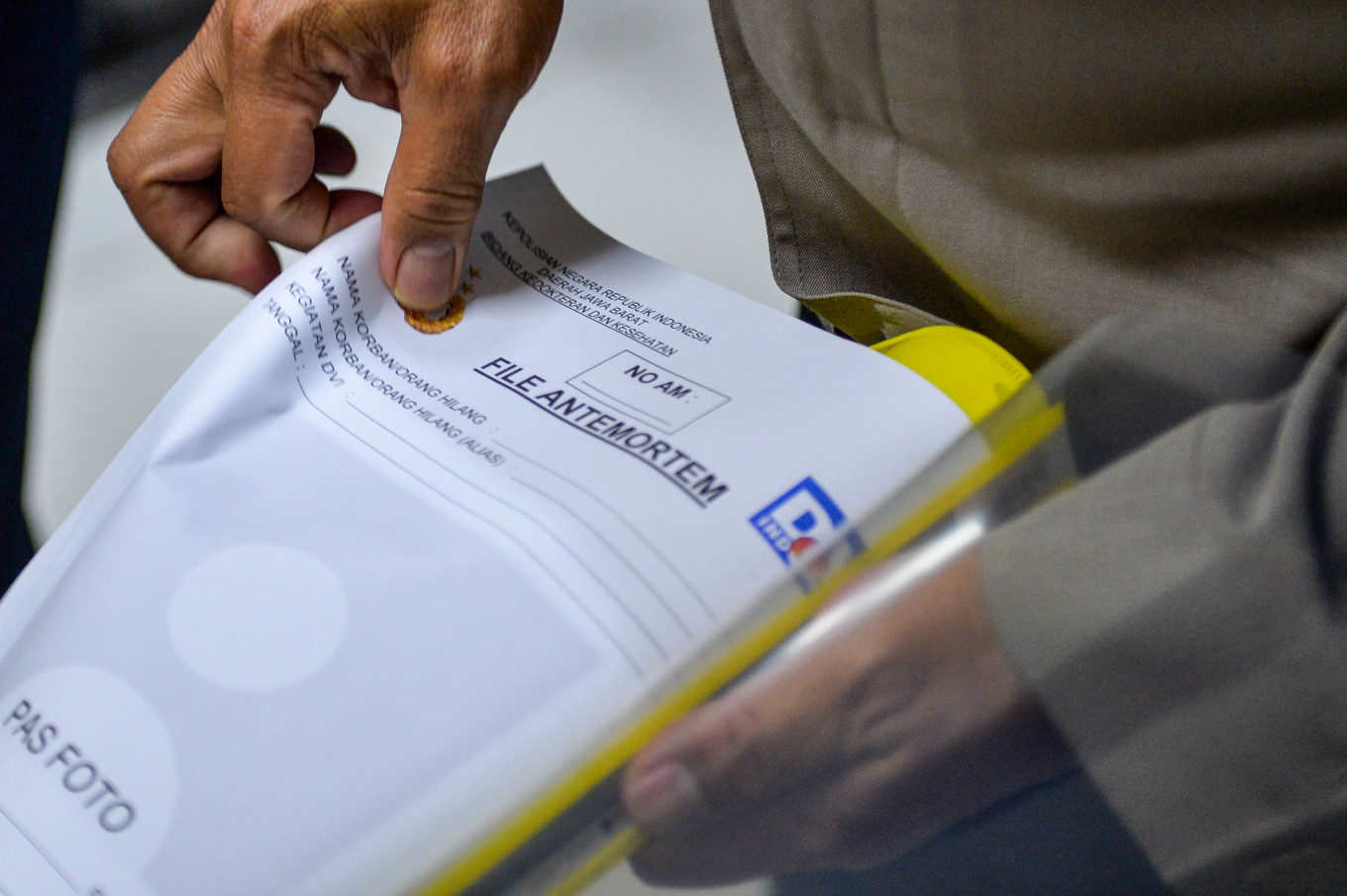Popular Reads
Top Results
Can't find what you're looking for?
View all search resultsPopular Reads
Top Results
Can't find what you're looking for?
View all search resultsTNI professionalism matters
The TNI has claimed compliance with standard operating procedure, but the presence of civilians at such a dangerous zone shows otherwise.
Change text size
Gift Premium Articles
to Anyone
T
he loss of 13 lives in an explosion related to the disposal of expired ammunition in Garut, West Java, last week constitutes a tragedy. While the Indonesian Military (TNI) has promised a thorough investigation into the accident, any conclusion will be meaningless without accountability from the top brass and an overhaul of the ammunition disposal mechanism.
Nobody should have been killed in the routine operation, which had been conducted in a field belonging to the regency’s Nature Conservation Agency for decades, had rigid procedure been followed. Findings on the ground suggest that the military had employed civilian residents for the dangerous job, which requires a specific skillset that only trained soldiers had the competence for.
Nine of the fatalities were civilians, one of whom is believed to have helped the military in disposal work for 10 years. Kompas reported the TNI had been hiring around 20 residents for each operation.
The TNI has claimed compliance with standard operating procedure, but the presence of civilians at such a dangerous zone shows otherwise. No wonder civil society groups have blamed the TNI for inadequacies in providing security to local residents and insufficient efforts to raise public awareness of the disposal site's safety procedures.
According to standard procedure, the disposal activities must be carried out only after receiving approval from authorized officers, unless the circumstances are urgent or dangerous. The method of destroying ammunition is by combustion or explosion, taking into account the ammunition's basic properties, security requirements and other technical elements. There is no mention of the involvement of civilians.
The Garut explosion was not the first to involve military ammunition. In 1984, the ammunition storage at the Marine headquarters in Cilandak, South Jakarta, exploded in September, killing at least eight people. The impact of the explosion was felt as far as 2.5 kilometers off the site of accident, including Fatmawati Hospital.
In 2014, the ammunition warehouse belonging to Navy special forces in Tanjung Priok, North Jakarta, went off leaving one officer dead and injuring over 80 others, while another explosion in March last year at an ammunition storage facility belonging to the Jakarta Military Command in Gunung Putri, Bogor, claimed no fatalities.
Calls for a comprehensive investigation into the Garut tragedy have come from many quarters, including House of Representatives Speaker Puan Maharani. She underlined the importance of accountability and an explanation from the TNI regarding the alleged involvement of local residents in the disposal of ammunition without proper security procedures. She recommended that House Commission I overseeing defense summon relevant military officers for clarification.
Any investigation into the Garut blast should however involve an independent institution, such as the National Commission on Human Rights, given the civilian casualties it caused. The participation of a neutral institution will ensure transparency and, hence, credibility of probe results. Transparency matters, as the investigation will have to find out why civilians were in the dangerous zone and who allowed them to enter the place.
As reported by Kompas, local residents said they had helped the military transport the ammunition to the disposal site, open the cartridge cases, dig holes for detonation and place the ammunition inside. They seemed to learn the procedure by doing and never received any formal safety training.
West Java Governor Dedi Mulyadi, who visited the explosion site, confirmed the findings. The daughter of one of the civilian fatalities told him her father had assisted the military in disposing of expired ammunition for many years and was not a scavenger, as claimed by the TNI.
Whether the fact-finding team will conclude the explosion was a result of negligence or a serious procedural violation, the accident has reminded the TNI to stick to its commitment to professionalism.
The TNI has recently expanded its remit from its defense role to involve itself in more civilian affairs, such as helping administer the free nutritious meals program and other initiatives for food self-sufficiency. This shift poses a risk of negligence in their primary duties.
The erosion of military professionalism will only allow tragic accidents like that in Garut to recur.











